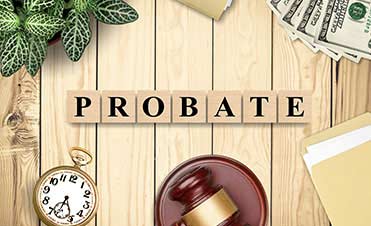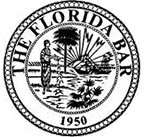Estate Planning Done Right
- Secure Your Loved Ones’ Future
- Safeguard Your Family’s Legacy
- Keep Their Inheritance Safe
Need An Estate Planning Lawyer In St Augustine, FL?
Veteran Estate Planning Lawyer Serving St Augustine In St. Johns County
Estate Planning

Attorney Paul H. Threatt can help YOU be the Hero your family needs in a time of crisis! By establishing an Estate Plan and preparing Crisis Planning documents, you can prepare your family for the worst and be their Hero in their darkest hour.
Paul is a veteran and family man committed to serving his community and you. He graduated from N.C. State University in 1995, and earned his Juris Doctorate from Indiana University’s Mauer School of Law in Bloomington in 2008.
After earning his Bachelor’s Degree, he served in the United State Marine Corps and as a Russian linguist. Then after law school, he joined the Navy JAG Corps. After several successful tours, he settled down and returned to the U.S. to help his fellow Americans. Paul brings the same commitment of service to you, his client.
Working with The Law Offices of Paul H. Threatt, PLLC ensures you’ll receive legal support exceeding your expectations in Florida’s estate planning, probate, and real estate law. In addition, having counsel by your side can ensure you have access to healthcare, keep your family close, and secure your legacy.
How Much Does Estate Planning Cost In Florida?
The cost of an estate planning lawyer in Florida can vary depending on the details of the situation. If the estate is smaller and doesn’t contain significant assets or property, there will be fewer costs associated with the process. On the other hand, if a living trust is involved and/or there is a large estate to plan for, expenses can be expected to rise.
All this to say, according to statistics, a typical estate planning package in Florida can range anywhere from $1,000 to $4,000. It is important to note that additional fees can incur due to factors such as probate, disputes, and other unforeseen legal obstacles.
The best way to get an accurate estate planning estimate for your particular situation is by speaking with a legal professional directly. This will enable you to explain your unique needs and obtain the fact-based information you are seeking.
Types Of Trusts For Estate Planning In Florida
There are several different types of trusts for estate planning in Florida. Each trust accomplishes its own objectives, which is why you should be acutely aware of the details of your particular situation.
The most commonly used trusts in the state of Florida include:
- Revocable/Living Trusts: This is a trust that can be changed, amended, or revoked at any point in time by the owner of the estate. As long as the individual is alive, they are in control of the trust.
- Irrevocable Trusts: Irrevocable trusts do not allow changes to be made once the trust agreement is signed by the grantor or settlor. One of the advantages of an irrevocable trust is that they are often not subject to certain estate taxes. This is why many wealthy individuals choose to put this type of trust in place prior to their death.
- Special Needs Trust: This specialized trust allows disabled beneficiaries to utilize property that is held in the trust for their benefit – while allowing them to receive ongoing needs-based government benefits at the same time. These are generally categorized as irrevocable trusts, and they can be used for minors, individuals with mental or physical challenges, and as a way to achieve asset protection.
- Medicaid Trusts: Medicaid trusts assist with a person’s eligibility for Medicaid. This enables them to cover major expenses such as long-term nursing home care while also ensuring an inheritance for their beneficiaries.
Client Testimonials
“Paul was very knowledgeable and professional. He helped me with everything I needed!”
- Cassandra S.
"He treated us great. We would definitely use his services again! He was kind, thorough, and knowledgeable. An all around excellent Attorney."
– Aaron K.
"Paul is very knowledgeable and the process was smooth and stress free! Very convenient, Paul is accessible and friendly. Highly recommend!"
– Amy Mc.
Estate Planning Cases We handle

Estate Planning
Our firm understands the importance of preserving your legacy for future generations. We are highly experienced in helping our clients...
Read More
Probate
Probate can be a tedious and time-consuming legal process to endure. With our help, you’ll be able to navigate probate...
Read More
Wills & Trusts
Wills and trusts are excellent estate planning tools, especially if they are used correctly. Depending on your goals for the...
Read MoreQuestions to ask your Estate Planning Attorney
The process of estate planning varies greatly depending on the circumstances of each individual. In most cases, your estate planning begins with a meeting with your lawyer. During this time, you will establish your goals and analyze the current state of your assets and property. From here, you will likely be presented with different estate planning options available to you – ranging from living trusts to long-term medical care.
Your estate planning lawyer will be invaluable throughout this process, as they will advise you on the best course of action to take and how to get there efficiently and effectively. You may be asked to sign and date various documents, appoint trustees, and gather information pertinent to your estate. Whatever steps you need to take, make sure you do so with the trusted oversight of your legal counsel.
If you go through a divorce, your will is very likely to undergo significant changes. In some cases, you may be advised to revoke your old will and execute a new one. Florida Statute §732.507(2) states that “any provision of a will that affects the testator’s spouse is void upon dissolution of the marriage of the testator and the spouse, whether the marriage occurred before or after the execution of such will.”
Whether you are currently going through a divorce or have already completed one, it is highly recommended that you seek the guidance of an estate planning attorney to help you make any necessary changes to your will.
Depending on the current estate plan in place, you may be able to make changes to it. For example, a living trust enables you to make changes to your estate plan all the way up until your death. On the other hand, an irrevocable trust does not allow any amendments to be made to the estate plan, but it can provide tax benefits that living trusts typically do not.
If you are considering making changes to your estate plan prior to your death, you should keep this in mind while you are forming a will or trust with your lawyer. In cases where you already have an estate plan and wish to make changes, you should consult a legal advisor to get familiar with your options.
The best way to determine this is by consulting a lawyer for preparing estate planning documents. Each estate plan is unique, which means paperwork details will likely vary from person to person.
Some of the most common estate planning documents used in Florida include:
- Last Will and Testament
- Durable Power of Attorney
- Preneed Guardian Designation
- Advance Healthcare Directive
- Letter of Instruction
- Beneficiary Designations
- Revocable Living Trust
In order to have these important documents completed, it is vital that you have access to records such as:
- Bank accounts
- Real estate deeds
- Birth certificates
- Retirement accounts
- Life insurance policies
Have more questions about estate planning documents? Contact the Law Offices Of Paul H. Threatt here to learn more!
Latest Estate Planning Articles
Many wonder if it’s ever too early or too late to engage in estate planning. In my experience, there is no “perfect time” for estate planning because it transcends traditional age milestones.
When people turn to me for assistance in creating their estate plans, I tend to encounter the same misconception time and time again.
Understanding the difference between a will and a trust is crucial.
Areas We Serve
Duval County, St. John County, Saint Augustine, FL
Schedule A Consultation
We look forward to hearing from you!
Office Location
8519 Crosswinds Drive
Saint Augustine, FL 32092
Office Hours: (Monday - Friday): 9AM- 5PM





